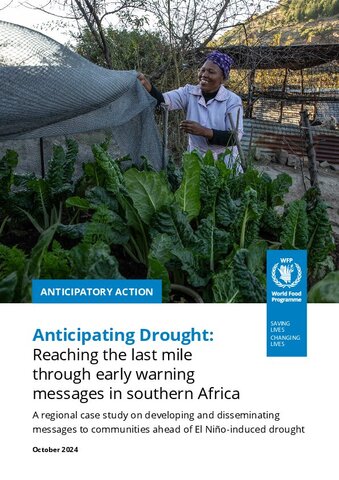
From July 2023, ahead of the predicted 2023/2024 El
Niño-induced drought, WFP activated its anticipatory
action plans in Zimbabwe, Mozambique, Lesotho, and
Madagascar. As part of these activations, WFP supported
key interventions across the four countries, including
cash-based transfers (CBT), distribution of
drought-tolerant seeds, and the dissemination of Last
Mile Early Warning Messages (LMEWM). LMEWM involves the
timely dissemination of weather alerts and advisories to
communities, particularly in vulnerable areas, to enable
them to act ahead of a predicated hazard. The LMEWM
disseminated ahead of the predicted impacts of the El
Niño event, reached over 1.2 million at-risk individuals
ahead of the impacts of the El Niño event allowing them
to make risk-informed decisions and to protect their
lives and livelihoods ahead of the predicted drought
(see Figure 1). This case study highlights the process
of developing and disseminating LMEWM, and documents
best practices and recommendations for effective
planning and implementation of LMEWM as part of an AA
activation.



